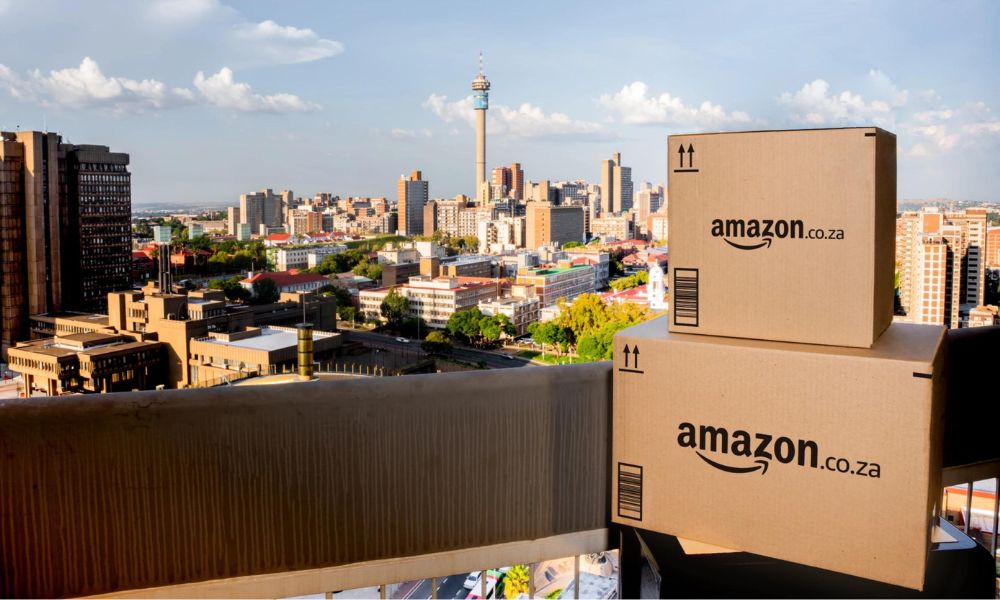Amazon's project Kuiper targets South African technical talent
Postado por Editorial em 17/11/2025 em TECH NEWSRecruitment for ground infrastructure manager signals Amazon's preparation to deploy LEO broadband network across continent as Starlink competitor faces regulatory barriers in South Africa

Amazon has initiated recruitment of South African technical professionals to build ground infrastructure for Project Kuiper, its satellite internet constellation competing with SpaceX's Starlink, as the company advances plans to deploy low-Earth orbit broadband services across Africa and the Middle East.
The company posted a technical business development manager position specifically targeting South African candidates responsible for acquiring and developing ground station sites throughout the African continent. The role represents Amazon's progression toward establishing physical infrastructure required to connect Project Kuiper's satellite network with terrestrial internet backbones across the region.
According to the LinkedIn job posting, the position focuses on strategic acquisition of Project Kuiper ground infrastructure sites across the Africa and Middle East region. Responsibilities include identifying and negotiating teleport locations, securing land acquisitions, and establishing gateway stations that interface between orbiting satellites and fiber-optic internet infrastructure on the ground.
Amazon specified the role requires extensive travel within Africa and coordination across internal teams managing construction, fiber networking, regulatory compliance, and environmental assessments. The company seeks candidates with background in satellite teleport operations, data center site development, and land acquisition processes.
Project Kuiper represents one of Amazon's largest capital commitments—a multi-billion dollar initiative to deploy thousands of satellites into low-Earth orbit for global high-speed internet delivery. Amazon has completed initial test satellite launches and projects full commercial service deployment within two years.
Reliable ground infrastructure throughout Africa proves essential for Project Kuiper's operational architecture. Satellite internet systems require distributed ground stations to receive signals from orbiting satellites, route traffic to internet backbones, and transmit uplink data. Geographic distribution of these facilities affects network latency, throughput capacity, and service coverage areas.
The recruitment initiative follows earlier indications that Amazon has engaged South African telecommunications operators and internet service providers regarding Project Kuiper service launch preparations. These discussions suggest Amazon is laying groundwork for market entry while competitor Starlink remains unlicensed in South Africa due to regulatory compliance disputes.
Starlink has not received operational authorization in South Africa because SpaceX declines to comply with regulations requiring 30% ownership stakes in local licensees by black South African investors. This regulatory standoff creates potential market opportunity for Project Kuiper if Amazon structures its South African operations to satisfy local equity requirements.
Amazon's job listing explicitly references South Africa's employment equity legislation, stating the company "especially welcomes applications from South African citizens who are members of designated groups." This language indicates awareness of local regulatory frameworks and potential strategic positioning to meet equity requirements that have blocked Starlink's entry.
The emphasis on South African talent acquisition suggests Amazon may structure Project Kuiper's African operations with substantial local management and technical leadership, contrasting with approaches that centralize decision-making outside the continent. This localization strategy could address both regulatory expectations and operational requirements for managing distributed infrastructure across diverse African markets.
Low-Earth orbit satellite constellations like Project Kuiper and Starlink operate at altitudes between 340 and 1,200 kilometers, significantly lower than traditional geostationary satellites positioned at 35,786 kilometers. This proximity reduces signal latency from approximately 600 milliseconds to 20-40 milliseconds, enabling applications requiring real-time responsiveness including video conferencing, online gaming, and financial trading.
However, LEO constellations require substantially more satellites and ground infrastructure than geostationary systems. Project Kuiper received regulatory approval to deploy 3,236 satellites, though Amazon has indicated plans could expand beyond this initial authorization. Each satellite covers a smaller geographic area due to lower altitude, necessitating larger constellations and more ground stations to maintain continuous coverage.
For African markets characterized by limited terrestrial broadband infrastructure, satellite internet systems offer potential to bypass costly fiber-optic deployment across vast distances and challenging terrain. Rural and peri-urban areas lacking cable or fiber access represent primary target markets, though urban applications include backup connectivity, mobile network backhaul, and enterprise redundancy.
Amazon's ground infrastructure requirements extend beyond technical facilities to include regulatory approvals, spectrum licensing, import permits for equipment, environmental assessments, and coordination with aviation authorities regarding satellite ground station locations near airports. Navigating these requirements across multiple African jurisdictions with varying regulatory frameworks represents substantial operational complexity.
The technical business development manager role indicates Amazon is pursuing site acquisition and development rather than relying exclusively on partnerships with existing teleport operators or telecommunications providers. This suggests Amazon intends to maintain direct control over critical ground infrastructure, potentially improving service quality and operational flexibility compared to third-party dependencies.
South Africa's position as Africa's most developed telecommunications market and technology hub makes it strategic for Project Kuiper's African operations. The country offers established regulatory frameworks, technical talent, reliable electricity infrastructure for ground stations, and connectivity to undersea fiber cables linking Africa to global internet backbones.




